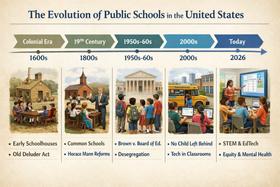Milton High School is a high school in Milton, Georgia, United States.
Serving 1,973 students in grades 9-12, Milton High School ranks in the top 5% of all schools in Georgia for overall test scores (math proficiency is top 10%, and reading proficiency is top 10%).
The percentage of students achieving proficiency in math is 69% (which is higher than the Georgia state average of 39%). The percentage of students achieving proficiency in reading/language arts is 76% (which is higher than the Georgia state average of 40%).
The student-teacher ratio of 18:1 is higher than the Georgia state level of 14:1.
Minority enrollment is 41% of the student body (majority Hispanic and Black), which is lower than the Georgia state average of 65% (majority Black).
Quick Facts (2026)
- Grades: 9-12
- Enrollment: 1,973 students
- Student-Teacher Ratio: 18:1
- Minority Enrollment: 41%
- Graduation Rate: 96% (Top 10% in GA)
- Overall Testing Rank: Top 5%
- Math Proficiency: 69% (Top 10%)
- Reading Proficiency: 76% (Top 5%)
- Science Proficiency: 85-89% (Top 1%)
- Source: National Center for Education Statistics (NCES), GA Dept. of Education
Top Rankings
Milton High School ranks among the top 20% of public schools in Georgia for:
Category
Attribute
Overall Rank
Math Proficiency
Reading/Language Arts Proficiency
Science Proficiency
Graduation Rate
School Overview
Milton High School's student population of 1,973 students has declined by 13% over five school years.
The teacher population of 108 teachers has declined by 10% over five school years.
Grades Offered
Grades 9-12
(No virtual instruction)
(No virtual instruction)
Total Students
1,973 students
Gender %
Total Classroom Teachers
108 teachers
Year Founded
1921
Colors
White, Red, Navy Blue
School Calendar
Last Day of School
Mon. May 25, 2026
School Motto
Excellence, Trust and Honest Communication
Average Class Size
15 students
School Rankings
Milton High School ranks within the top 5% of all 2,192 schools in Georgia (based off of combined math and reading proficiency testing data).
The diversity score of Milton High School is 0.61, which is less than the diversity score at state average of 0.71. The school's diversity has stayed relatively flat over five school years.
Overall Testing Rank
#106 out of 2192 schools
(Top 5%)
(Top 5%)
Math Test Scores (% Proficient)
69%
39%
Reading/Language Arts Test Scores (% Proficient)
76%
40%
Science Test Scores (% Proficient)
85-89%
40%
Student-Teacher Ratio
18:1
14:1
American Indian
n/a
n/a
Asian
10%
5%
Hispanic
16%
19%
Black
11%
36%
White
59%
35%
Hawaiian
n/a
n/a
Two or more races
4%
5%
All Ethnic Groups
Graduation Rate
96%
84%
Participates in the National School Lunch Program (NSLP)
Yes
Eligible for Free Lunch
15%
59%
Eligible for Reduced Lunch
3%
5%
School Statewide Testing
School District Name
Source: National Center for Education Statistics (NCES), GA Dept. of Education
School Notes
- School Mascot: Eddie The Eagle
Frequently Asked Questions
What is Milton High School's ranking?
Milton High School is ranked #106 out of 2,192 schools, which ranks it among the top 5% of public schools in Georgia.
What schools are Milton High School often compared to?
Milton High Schoolis often viewed alongside schools like Cambridge High School, Alpharetta High School by visitors of our site.
What percent of students have achieved state testing proficiency in math and reading?
69% of students have achieved math proficiency (compared to the 39% GA state average), while 76% of students have achieved reading proficiency (compared to the 40% GA state average).
What is the graduation rate of Milton High School?
The graduation rate of Milton High School is 96%, which is higher than the Georgia state average of 84%.
How many students attend Milton High School?
1,973 students attend Milton High School.
What is the racial composition of the student body?
59% of Milton High School students are White, 16% of students are Hispanic, 11% of students are Black, 10% of students are Asian, and 4% of students are Two or more races.
What is the student-teacher ratio of Milton High School?
Milton High School has a student ration of 18:1, which is higher than the Georgia state average of 14:1.
What grades does Milton High School offer ?
Milton High School offers enrollment in grades 9-12 (No virtual instruction).
What school district is Milton High School part of?
Milton High School is part of Fulton County School District.
School Reviews
2 10/10/2025
The teachers at this school are either incredible or incredibly undedicated. I have had, in the past two years, one completely dedicated teacher who loves his job, one teacher who loves the subject but not so much teaching, and the rest have been mediocre at best. The homework load is too intense for public school, especially since I don't learn anything in class. There are too many students and it's incredibly clique-y. Mostly, football players hang out with football players and cheerleaders, bandies with bandies, etc. Music is very big here, but mostly only band because the principal's kids were in band. They get more funding than our lacrosse team. The facilities are incredible, of course, and incredibly new. Parents are, hm, fairly involved I suppose. At least, some of them are, whereas others are completely involved.
5 10/10/2025
very good school all around
Review Milton High School. Reviews should be a few sentences in length. Please include any comments on:
- Quality of academic programs, teachers, and facilities
- Availability of music, art, sports and other extracurricular activities
Recent Articles

Do We Still Need Libraries in Public Schools in 2026
An updated look at the role of public school libraries in 2026, their impact on literacy, equity, and digital learning, and why they remain essential today.

The History of Public Schools in the United States
Explore the history of public schools in the U.S., from colonial roots to 2026 reforms shaping equity, funding, and classroom innovation.

Special-Program Registration Deadlines Explained
Learn what to know about special-program registration deadlines for magnet, CTE, and dual-enrollment options in public schools.





